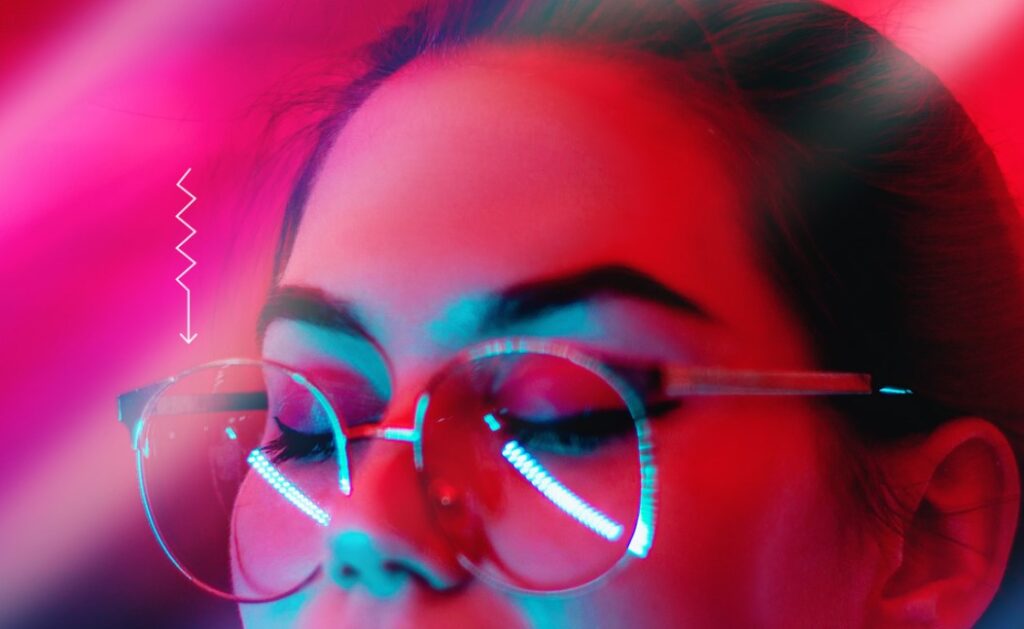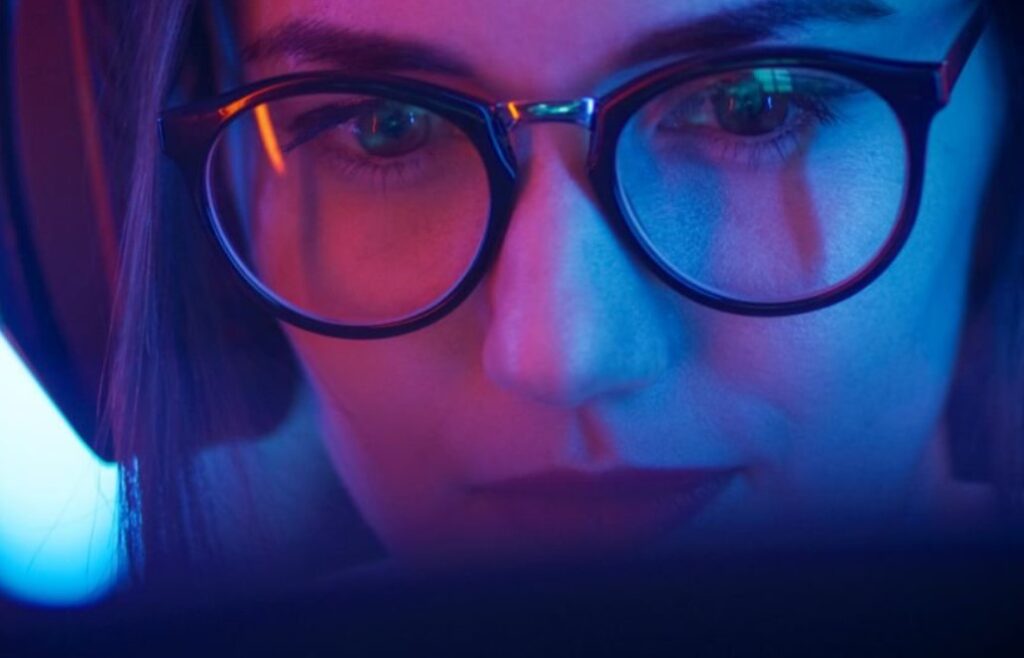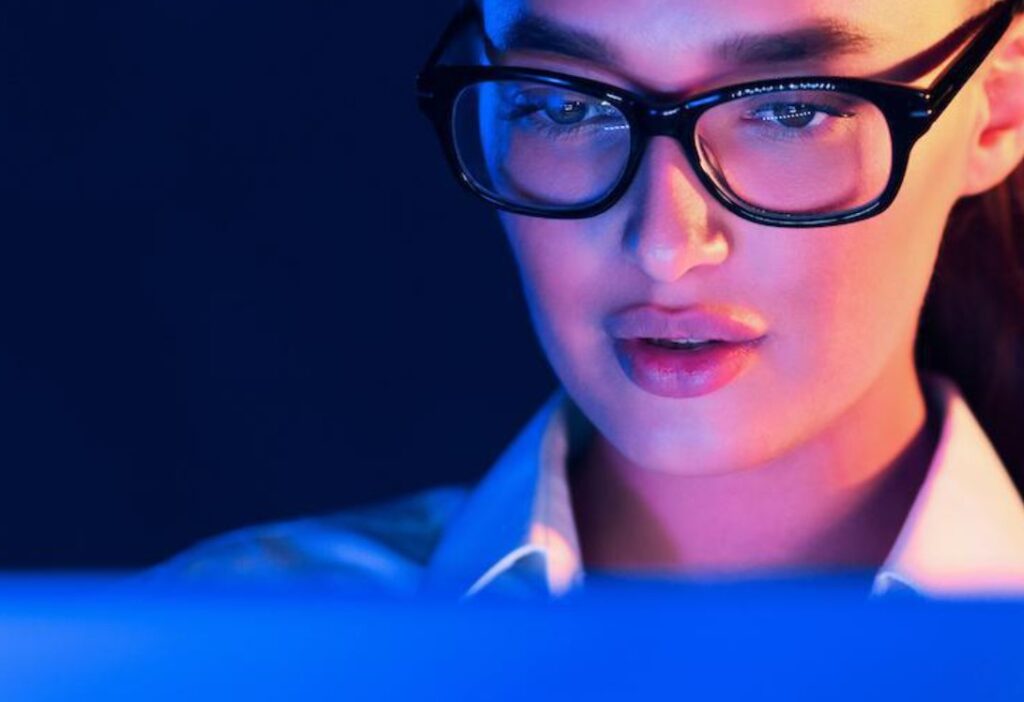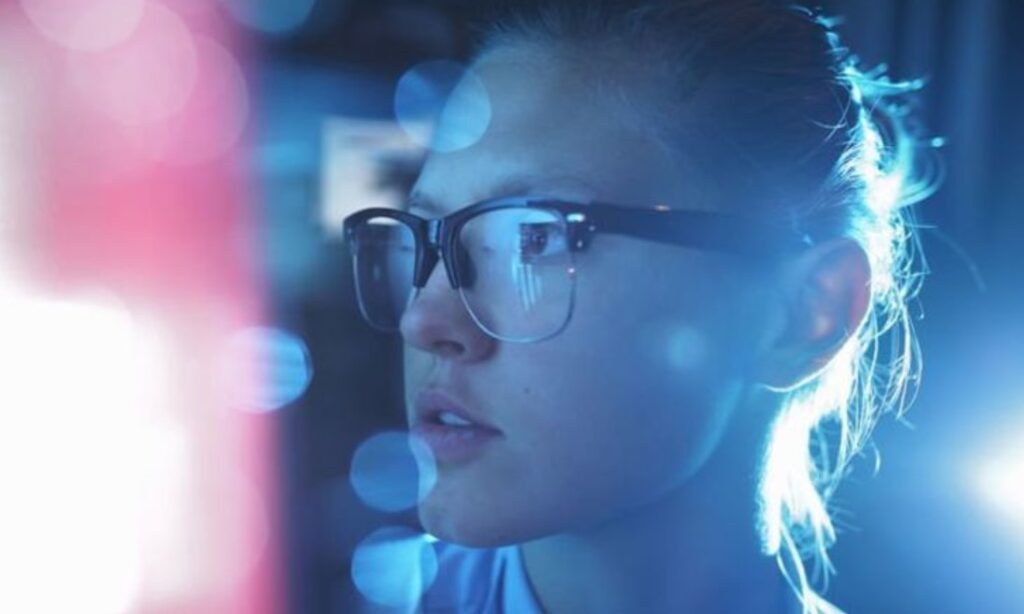The quarantine period proved we can stay at home to work and play (and we have!). Of course, where would work and play be without our laptops, smartphones, and the ever-reliable TV? In a survey that examined how Americans spend their time, it was revealed that the average man/woman uses up to 4 hours on their smartphone, 4 hours watching TV, and about 5 hours in front of their computers.
Although work is work and some types of entertainment require undivided attention, the hours spent in front of a monitor or phone screen do take their toll, especially on the eyes. Studies show that people who work in front of a computer do not blink their eyes as often as they should. Blinking is a helpful mechanism that keeps the eyes moisturized with natural tears. Furthermore, electronic screens emit blue light.
Aside from using blue light glasses while working or playing on a computer, tablet, game console, or smartphone, Bluelight-filter-glasses.com recommends using other steps to further protect your eyes from damage. Here are some you should try.
So, What’s the Problem with Blue Light?

Blue light is at the opposite end of the spectrum. Unlike red light, blue light has more energy and shorter wavelengths. The problem with blue light is that it could cause phototoxicity, a condition wherein parts of the eye, especially the retina is damaged. The severity of the damage will depend on how long the eyes are exposed to the light and on the wavelength. Using a filter or protective glasses that stop blue light from entering the eyes can help reduce damage.
How Can Blue Light Glasses Protect Your Vision?
There is evidence that constant exposure to blue light without protection can lead to permanent changes in one’s vision. Since exposure cannot be helped, there are ways to protect your eyes from the damages that blue light can cause. Using glasses that are specially designed to block blue light can help provide good protection from glare and other negative effects.
But how do blue light glasses do this?

The answer is simple but complex. Light is actually electromagnetic radiation. This is the type of radiation that, given enough time and severity of exposure, can increase the risk of burns and even cancer. The spectrum of light is made up of waves that have different wavelengths which are measured in nanometers.
What we see as “light” is called visible light, which includes X-rays, radio waves, and microwaves. These visible wavelengths range from 380 nanometers to 740 nanometers. The longest visible wavelength is red while the shortest wavelength is violet. UV light or ultraviolet light has an even shorter wavelength, which is why the human eye cannot detect it.
While screens do not emit UV light, they do produce unfiltered blue-violet light. When you look at a TV, monitor, or phone screen, this light enters your eyes and passes through to the retina. UV light, on the other hand, is mostly absorbed only by the surface or front area of the eye. Only very little reaches the retina where it can do damage.
Blue light glasses are built with lenses that filter out blue light. However, the lenses allow other light wavelengths through so you can view the monitor clearly and comfortably. As such, blue light glasses help protect the eyes from the damage that high-energy blue light can cause.
What Can Blue Light Glasses Do?
There are many symptoms associated with prolonged exposure to monitor screens. Here are some of the most important types of protection that blue light glasses can offer.
Protection from Computer Eye Strain

Images that you view on the screen are made up of tiny areas of illumination called pixels. As these images change onscreen, the eye coordinates with the brain to process them. Eye muscles have to work hard to follow these images and make them comprehensible to the brain. Monitor screens also flicker, produce glare, and show contrast. All these factors cause the eyes to work harder. Blue light glasses often have an anti-reflective coating that significantly reduces the strain on the eyes.
Promotes Better Sleep
Melatonin is a hormone that signals the body to rest through sleep. Blue light triggers the body to stay awake. This is why people who read or watch videos via their smartphones before bedtime find it very difficult to fall asleep. And this does not refer to just a few individuals. In a poll conducted by the National Sleep Foundation in 2011, around 90% of Americans say that they use electronic devices (including phones) inside the bedroom just an hour before attempting to fall asleep.
Because they emit blue light, these devices can disrupt the body’s natural sleep pattern. Avoiding or at the very least, reducing exposure to blue light (and other types of light) during the hours before bedtime can help the body transition to a good night’s sleep.
Reduction of Macular Degeneration Risks

There are studies that link prolonged exposure to blue light to a condition called macular degeneration. This is the gradual damage to the macula, which is part of the retina, that leads to vision distortion or even loss of one’s central vision. Macular degeneration used to be a condition found in older adults.
These days, however, doctors are seeing a growing number of cases among younger patients. They believe that overexposure to and dependency on electronic and digital devices may be the reason why macular degeneration is increasingly seen in younger individuals.
Research regarding the subject may still be sparse but with the availability of lenses that can effectively block blue light, there really is no reason why people who use electronic devices frequently should not use these lenses.
How You Can Protect Yourself Further
Set a schedule for bedtime. If bedtime is at 10 p.m., remind yourself to turn off all electronic devices by 7 or 8 p.m. This will give your eyes and your body enough time to adjust so you can properly fall asleep.
Keep brightness levels low. Find the brightness setting on the electronic device and set it at a low level. You can also turn on the blue light filter in the device if it is available or use the Night Mode to reduce your exposure to blue light.
Use natural lighting. If sunlight is available, opt to enjoy natural lighting if it is accessible. If not, use natural lighting such as candles or go for orange or yellow-tinged light bulbs instead. These lights are gentler on the eyes than harsh white lights.
Your eyes perform a very important job for you, and it is only fair that you treat them with utmost care. With just a few steps, you can avoid overexposure to damaging blue light and still enjoy using electronic devices. If you have concerns and more questions, seek advice from a reputable optical professional.
Related Posts:
- 7 Security Measures Online Businesses Can Take to…
- 6 Ways to Protect Your Crypto Exchange From Hackers in 2024
- 11 Tips to Protect Your Business Online
- How Bots Negatively Impact Your Business (And How To…
- The Evolution of Safety Glasses: A Brief History and…
- How To Protect Yourself Against Online Identity…







